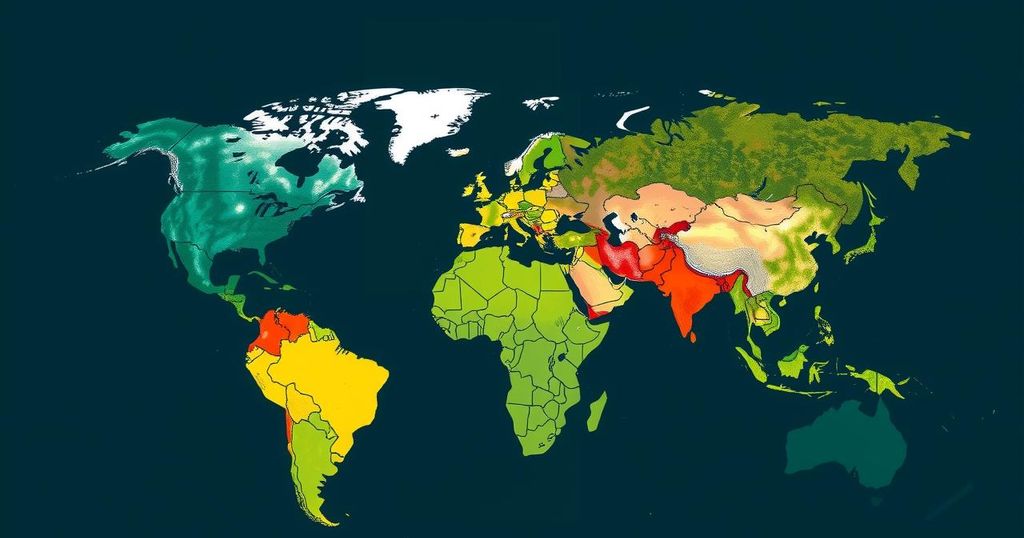Wealthy nations have caused the climate crisis yet are unwilling to adequately fund solutions, with COP29 pledging only $300 billion annually, far below the needed $1.3 trillion. This negligence threatens both poorer nations’ ability to adapt and the global climate system, potentially leading to increased temperatures and economic costs. The outcome has led to widespread disappointment and a call for more substantial action at future summits, such as COP30 under Brazil’s presidency.
The rich industrialized nations, despite being the primary contributors to the climate crisis, have collectively shown reluctance to assume responsibility for the financial repercussions stemming from their actions. The COP29 summit was intended to mark a decisive moment wherein these nations would commit to financially assist poorer, more vulnerable countries in combatting climate impacts. However, the final outcome revealed a shocking inadequacy with only $300 billion pledged annually by 2035, greatly falling short of the $1.3 trillion deemed necessary by experts.
This refusal not only undermines the potential for developing nations to adapt and address their ongoing climate challenges but also jeopardizes the future of wealthier nations themselves. By failing to furnish adequate financial support, industrialized countries are prolonging their transition to clean energy, thereby exacerbating global temperatures and increasing costs and consequences associated with the climate crisis.
COP President Mukhtar Babayev acknowledged the shortcomings of the agreement, highlighting that it does not meet the essential $1 trillion needed to avert severe consequences of climate change. While he criticized certain Western governments for their unyielding stance, he recognized a few nations, particularly the UK under Labour leadership, for their proactive approach.
The financial commitment of $300 billion translates to approximately $6.6 billion per annum for the 45 most vulnerable nations. However, this amount is dwarfed by the projected $17 billion recovery cost for events like the devastating floods in Brazil, showcasing a significant failure to address the needs of developing countries. Consequently, this has resulted in widespread disappointment and a sense of betrayal among climate advocates.
Economists are equally condemning of the paltry commitment, emphasizing that delaying necessary funding will only inflate future costs. Climate change already impacts economies, with leaders like Spain’s Prime Minister advocating for immediate action, citing climate-related fatalities as a pressing concern.
There is a call for climate finance to be treated as an economic investment rather than mere charity, highlighting that robust funding could yield an impressive return on investment for developed nations. Yet, despite such evidence, wealthier countries continue to invest heavily in fossil fuels, contributing $620 billion in subsidies, significantly overshadowing their climate financing efforts.
Looking ahead, Brazil’s upcoming COP30 presidency represents a beacon of hope, with leaders vowing to strive for significant advancements in climate commitments. Both Brazilian officials and global leaders have emphasized the necessity of a committed approach to meeting climate goals and overcoming the challenges posed by existing COP structures.
The outcome of COP29 has highlighted the urgent need for a substantial shift in the global climate response framework if humanity is to avert the looming catastrophe associated with climate change. The time for decisive action is now.
The climate crisis is a pressing global issue that disproportionately affects poorer nations, which are often the least equipped to adapt to its consequences. Industrialized nations have historically contributed the majority of greenhouse gas emissions, yet they frequently fall short in providing the necessary financial support to address the damage caused. Events like the COP29 conference aim to create a framework for accountability and funding to assist vulnerable countries. However, the recent outcomes showcase a significant gap in commitments, threatening global efforts to mitigate climate change. Effective support and collaboration are crucial to ensure that all nations can meet their climate goals and address the repercussions of environmental degradation in a meaningful way.
The recent COP29 conference underscored a significant gap in the commitments made by wealthy nations toward climate financing, with industrialized countries failing to meet even a fraction of the financial assistance required by developing nations. Unless there is a dramatic shift in approach and accountability, the climate crisis will worsen, threatening not only vulnerable nations but the global economy as well. Immediate actions and strategies are needed to fulfill commitments that can effectively tackle the looming catastrophes posed by climate change.
Original Source: bylinetimes.com







